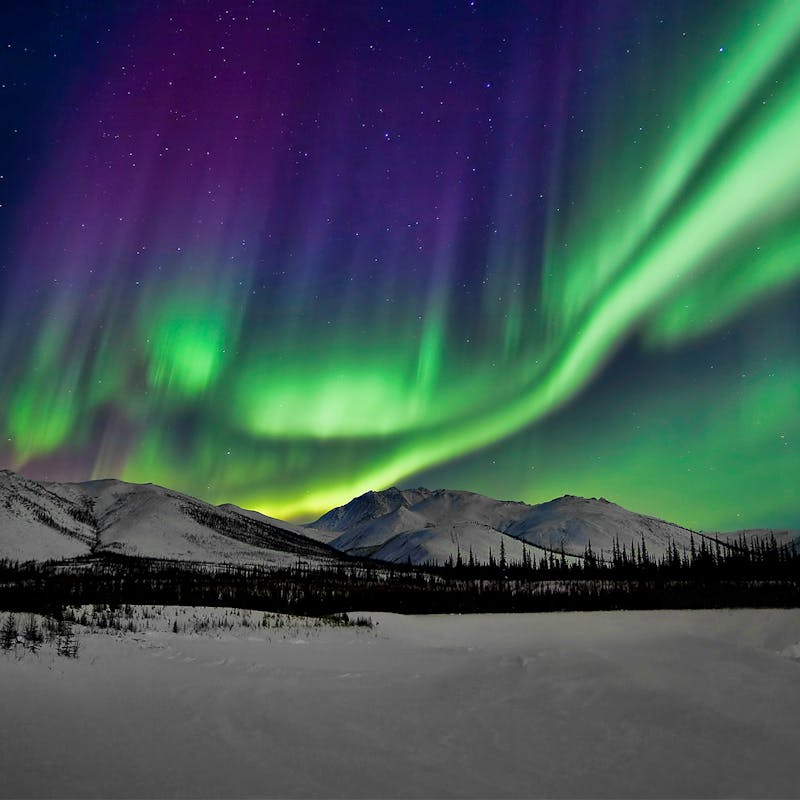A federal District Court in Alaska ruled on Sept. 30 that a National Park Service rule allowing hunting practices like killing brown bear sows and cubs in their dens on national preserves in Alaska was poorly reasoned and arbitrary. The decision allows the rule to remain in place while the Interior Department and Park Service revise regulations.
“We are pleased that the court found that a 2020 rule allowing the killing of defenseless bear cubs and wolf pups in their dens to be arbitrary,” said Nicole Whittington-Evans, Alaska program director for Defenders of Wildlife. “We hope that the National Park Service, an agency with the mandate to conserve wildlife, will make the right decision to stop these exploitive and unethical hunting practices on Alaska’s national preserve lands for good.”
The 2020 rule reversed the Park Service’s longstanding position that the State of Alaska may not implement practices within National Park System units that are designed to decimate predators to increase the numbers of moose and caribou available for hunters.
Trustees filed a lawsuit in August 2020, charging the National Park Service with violating the National Park Service’s Organic Act, the Alaska National Interest Lands Conservation Act, and the Administrative Procedure Act. Federal agencies typically allow the State of Alaska’s hunting regulations to apply on federal lands, but only within the bounds of federal mandates.
“The 2020 rule arbitrarily and unjustifiably reversed federal regulations and undermined the very purposes established for national preserves by Congress,” said Rachel Briggs, staff attorney with Trustees for Alaska. “Any rule that leads to the manipulation of predator populations rather than the preservation of wildlife diversity undermines the health and purpose of these public lands. We would have preferred that the court had tossed out that destructive rule while agencies redo the regulations, and we hope that the Park Service will quickly fix it.”
Law firm Trustees for Alaska filed the lawsuit on behalf of 13 clients: Alaska Wildlife Alliance, Alaska Wilderness League, Alaskans FOR Wildlife, Center for Biological Diversity, Coalition to Protect America’s National Parks, Copper Country Alliance, Defenders of Wildlife, Denali Citizens Council, the Humane Society of the United States, National Parks Conservation Association, Northern Alaska Environmental Center, Sierra Club and Wilderness Watch.
Statements
"We are relieved to see the court's agreement that the 2020 rule was illegal, but disappointed that the rule remains in place," said Nicole Schmitt, executive director of the Alaska Wildlife Alliance. "We will continue to speak up for the bears and wolves, and we encourage the National Park Service to stop these extreme sport hunting practices on Alaska's National Preserves once and for all."
“Bear baiting, killing sows with cubs while they hibernate, and shooting wolves with young pups are practices that do not belong on lands managed by the National Park Service,” said Andy Moderow, state director at Alaska Wilderness League. “We are glad the court recognized that the rule to allow these practices was highly flawed.”
“The court ruling is a mixed blessing for Alaska’s national preserves and the wildlife that inhabit them,” said Mike Murray, chair of Coalition to Protect America’s National Parks. “We are pleased that the ruling affirms the National Park Service’s authority to regulate hunting in national preserves, which includes the authority to preempt conflicting State law. In our view, the Service has an obligation to manage national preserve wildlife in accordance with the agency’s own conservation mandate, which states that ‘when there is a conflict between conservation and use, conservation is to be predominant.’ However, we are disappointed that the court decided to leave in place Alaska’s so-called ‘liberalized sport hunting’ practices, such as bear baiting and killing adult wolves and wolf pups during the denning season. These practices had previously been prohibited in national preserves; however, the 2020 rule passively allowed them to occur by removing the previous prohibitions. We look forward to the pending NPS revisions of the 2020 rule.”
“The court correctly held that the National Park Service violated the law when it began permitting cruel predator killing practices – like killing bears and their cubs in their dens – on Alaska’s National Preserves in 2020,” said Nicholas Arrivo, managing attorney for Wildlife for the Humane Society of the United States. “The court also made clear that the agency has the legal authority to prohibit these methods. It is imperative that NPS moves quickly to adopt a new rule protecting our wildlife and public lands by outlawing these practices once more.”
For over 75 years, Defenders of Wildlife has remained dedicated to protecting all native animals and plants in their natural communities. With a nationwide network of nearly 2.1 million members and supporters, Defenders of Wildlife is a leading advocate for innovative solutions to safeguard our wildlife for generations to come. To learn more, please visit https://defenders.org/newsroom or follow us on X @Defenders.
Media Contact
News

Ocelot Conservation Day Returns to the RGV






